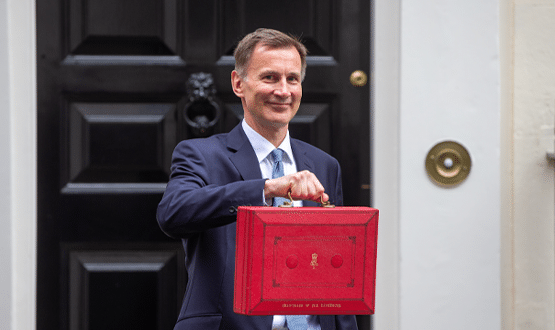£260m fund to boost e-prescribing
- 17 May 2013

Health secretary Jeremy Hunt has announced a £260 million fund for hospitals to increase their use of e-prescribing and electronic patient records.
The ‘Digital Challenge’ fund will be used by hospitals to, “replace outdated paper based systems for patient notes and prescriptions, and is a critical stepping-stone in helping the NHS go digital by 2018”, the Department of Health says.
Hunt explained: “In many places, right now, a paramedic picking up a frail elderly woman who has had a fall will not always know she has dementia, because he or she cannot access her notes.
“Or a doctor is prescribing the wrong drugs, because they don’t know what drugs their patient is already on.
“If we are to improve patient safety then we must allow the NHS to have access to the best tools available and this fund will help them achieve that.”
A DH statement says the fund will be used primarily for e-prescribing, which it describes as, “computer generated prescriptions sent by doctors directly to pharmacies, linked to barcodes unique to each patient”.
The technology will play a huge part in cutting errors and improving safety, it adds.
Last year at least 11 people died in the NHS because they were given the wrong prescriptions.
“The fund will also be used for creating electronic systems, linked to patient records, which talk to each other right across hospitals,” the statement says.
Although they are generally credited with delivering safety and efficiency benefits, e-prescribing systems are complex and can take years to roll-out across entire hospital sites.
EHI Intelligence, the research arm of EHI, reported last year that just 70 NHS acute trusts, or around 50% of the potential market, have an e-prescribing system in place.
In its ‘Market by Numbers’ market forecast report, EHI Intelligence noted that even when e-prescribing systems are in place, they are likely cover only outpatient ‘to take out’ medicines, or a limited number of wards.
EHI’s annual survey of IT in the acute sector found that many IT directors wanted to prioritise e-prescribing programmes.
However, a number also reported that they had been forced to shelve projects because of the financial pressures on their trusts, and the difficulty of making a short term saving on e-prescribing systems.
Just this month, almost six out of ten of respondents to EHI’s The Big EPR Survey said that e-prescribing should be seen as a "core" component of an electronic patient record system, with one in four saying it was "important" and just over one in ten describing it as "good to have."
Tim Kelsey, NHS England national director for patients and information, said the fund would enable the NHS to make substantial progress towards routine use of high quality data at the point of care.
"This step change in integrating diverse information sources around the needs of the patient will support clinicians and provider organisations deliver world class patient care,” he said.
NHS England medical director Sir Bruce Keogh said supporting hospitals to replace paper with digital systems would help relieve patients’ frustration at having to repeat their medical and medication history because their records were unavailable.
"Expanding the use of electronic prescribing of medications in hospitals will help improve safety, save lives and save taxpayer’s money."
NHS hospitals can bid for part of the £260m fund for individual projects. To be eligible, they must demonstrate that these will lead to better, safer care.
Details about how to apply for the fund will be published soon.



